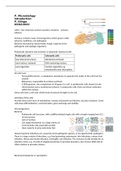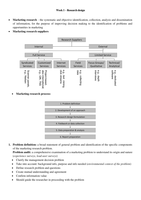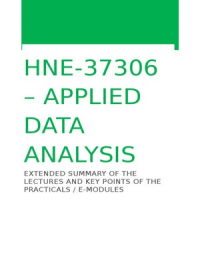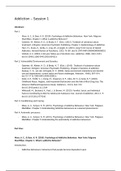Devolution – Delegation of some governmental powers away from the centre (parliament)
and to the regions
Scottish Parliament and Government – Legislative body and executive established in
Scotland following the 1997 referendum, now elected on a 5-yearly basis (a.k.a., Holyrood)
Welsh Assembly and Government – Legislative body and executive established in Wales
following the 1997 referendum, now elected on a 5-yearly basis (a.k.a., Senedd)
Northern Ireland Assembly and Executive – Legislative body and executive established in
Northern Ireland following the 1998 referendum, elected on a 5-yearly basis
Scotland Act 1998 Scotland Act 2012 Scotland Act 2016
Primary Legislative significant tax- major transfer of
Powers raising powers powers such as abortion
Scottish Variable Scottish Rate of law and speed limits
Rate (SVR) Income Tax (SRIT) Air Passenger Duty
Stamp Duty and (APD)
Landfill Tax Choose electorate in
Can now borrow up Scottish Parliament
to £5 billion and set up Elections subject to 2/3
Revenue Scotland vote
Delivery = part the
‘No’ side’s promise
from 2014 referendum
Government Government 2011 Wales Act Wales Act Senedd and
of Wales Act of Wales Act Referendum 2014 2017 Elections
,1998 2006 (Wales) Act
2020
Welsh Can get Ability first further Passed by
Assembly – further for transfer of transfer of Welsh Gov
secondary primary Assembly to tax-raising primary Senedd
legislative powers if make laws powers, e.g., legislative Cymru
powers approved by on all areas stamp duty powers (e.g., 16-17
referendum it has powers and landfill electoral year olds =
Welsh for tax – can system) parliament
Assembly 64% Yes replace these now on and local
Government More w taxes same footing elections
support since specific to as Scotland
1997 Wales
“Explain and Analyse three aspects of devolution in
Scotland”
Scotland Act 1998
- Primary Legislative Powers (law and order/health/education etc)
- TISB this allowed them to abolish tuition fees for Scottish Uni
Students – significant diversion away from that in Westminster
(Blair)
Scotland Act 2012
- Significant tax-raising powers – raise or lower income tax to up
to 10p in the pound (Scottish Rate of Income Tax)
- TISB allows Scotland to tailor its tax policies to better suit its
economic and social needs, reflecting preferences and priorities
of the Scottish people which may differ from those elsewhere in
the UK
Scotland Act 2016
- Further major transfer of powers to Holyrood – speed
limits/abortion/equal opportunities/gambling machines
- TISB this extension of powers was part of a delivery promise
made by the ‘No’ campaign during the 2014 Scottish
Independence Referendum campaign
“Explain
Couldandalso
Analyse three aspects
reflect growing of devolution
dominance in 56
of the SNP (won
out of 59 Scottish seats in the 2015 General Election)
Wales”
, Government of Wales Act 1998
- Set up the Welsh Assembly, which lacked primary legislative
powers but gained secondary legislative powers in areas
including agriculture and housing
- TISB this provided a platform for self-governance and increased
autonomy for Wales – giving Welsh politicians the authority
and powers that were previously held by the Secretary of State
for Wales in Westminster
Government of Wales Act 2006
- Enabled Assembly to request a referendum for the extension of
powers 2011 Referendum = 64% yes
- TISB illustrates a significant growth of support for Welsh
Devolution since the initial Welsh Devolution referendum in
1997 (simply 50.3% in favour)
Wales Act 2017
- Greater primary legislative powers including power over
Wales’s electoral system (subject to a two thirds majority vote
in the government)
- TISB this put Welsh devolution largely on the same devolved
footing as that in Scotland (bar policing and justice) –
highlighting its success
Recognised permanence of the National Assembly
“Explain and Analyse three aspects of devolution in
Northern Ireland”
Power Sharing Executive











